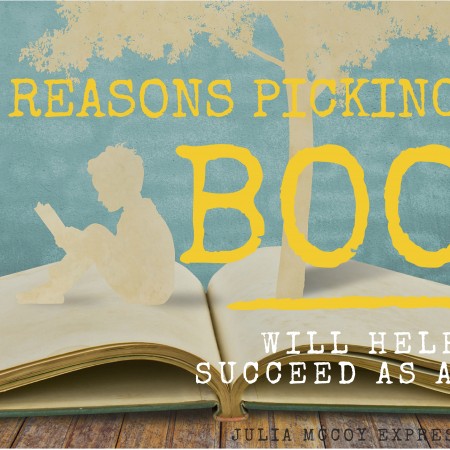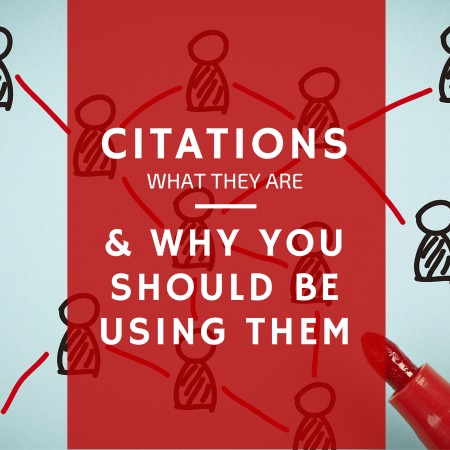25 Best Books To Help You Learn Copywriting
Mastering the art of copywriting can take years of experience. It’s important to enjoy writing, if you’re going to make this your trade. Copywriting can be an amazing career, especially today. In today’s digitally focused world of marketing, where great online content can generate serious income, top-notch writing skills are critical to attracting and converting customers. For those who need to polish and perfect their writing skills, we have a list of 25 best copywriting books and resources that will bring your writing abilities to current standards. Ready? Learn and get started with techniques taught by the greats right away, and watch your own copywriting skills come to life! Enhance Your Copywriting Skills With These 25 Awesome Books for Copywriters 1. The Copywriter’s Handbook: A Step-by-Step Guide to Writing Copy That Sells — By Robert W. Bly Robert Bly’s copywriting handbook helps you turn bland copy into persuasive and meaningful content. He also offers advice on web marketing, e-mail marketing, and multimedia presentations. The book includes 15 techniques to ensure that your e-mails are opened, and 11 ways to make your copy more readable. The Copywriter’s Handbook serves as a valuable book of reference for common copy writing needs. 2. Everybody Writes: The Go-To Guide to Creating Ridiculously Good Content — By Ann Handley The power of superior content writing is at the turn of every page in Ann Handley’s book. She offers practical advise for publishing content that makes an impact, along with the secrets behind content that helps bring businesses to authority status. For a copywriting guide that packs a punch, Everybody Writes just might be the right choice for you. 3. The Adweek Copywriting Handbook: The Ultimate Guide to Writing Powerful Advertising and Marketing Copy from One of America’s Top Copywriters — By Joseph Sugarman Looking to learn how to motivate your buyers? The Adweek Copywriting Handbook by Joseph Sugarman is yet another solid reference source for writing top-notch copy. Joseph demonstrates how to write effective copy that sells product, but he doesn’t skimp on the creativity. This book is easy to follow and serves as the perfect guide for writing snappy and creative ad copy. 4. The Online Copywriter’s Handbook: Everything You Need to Know to Write Electronic Copy That Sells — By Robert Bly Yet another hit by Robert Bly, The Online Copywriter’s Handbook is an all-in-one demonstration guide to writing copy that turns into conversions. Catering to multiple online media platforms, Robert focuses in on the best copywriting techniques for websites, landing pages, e-mail marketing, and more. Don’t miss out on this handbook if you are looking for an all-inclusive guide to online copywriting. 5. Creating Fat Content: Boost Website Traffic with Visitor-Grabbing, Google-Loving Web Content — By Dr. Andy Williams Dr. Williams’ book on web content emphasizes the power behind content that feeds the search engines. In order to get the most mileage out of your online copy writing, you should aim for a balance between pleasing both your audience and the search engines. He gives clear examples for content that converts and content that falls flat. Creating Fat Content explains exactly how to write great content all while boosting traffic. 6. Empower Your Writing: Skills for Today’s Content Creator — By Farnoosh Brock Content creators come in all forms these days. This author breaks down includes 22 errors to avoid when writing content, along with 9 tips for empowering your writing skills. The author takes this book a step further and includes 28 honest questions for discovering your own writing voice. As a content creator, you are the voice of your brand. This book will help you find that voice and empower your writing skills. 7. Kickass Copywriting in 10 Easy Steps: Build The Buzz And Sell The Sizzle — By Susan Gunelius Everyone loves a step-by-step guide, especially when it comes to copywriting that will sell your products and services. This kickass copywriting book helps small business owners understand the methods behind powerful writing. Susan offers clear concept on how to effectively market small businesses with content, and she also uses real-world examples with emotional triggers. This book is a must-buy for small business owners who are new to content writing. 8. 2k to 10k: Writing Faster, Writing Better, and Writing More of What You Love — By Rachel Aaron Nearly everyone wants to write better, but what about writing faster? With content essentially flooding the market, serious writers need to keep pace with the endless stream of demand. 2k to 10k demonstrates exactly how writers can take their ho-hum daily word count to beyond what they have imagined capable. Rachel shows her readers how to double their word counts while still maintaining the quality of their writing. For busy bloggers to newbies, 2k to 10k can help you write better and faster. 9. Breakthrough Copywriting: How To Generate Quick Cash With The Written Word — By David Garfinkel Looking for a few inside secrets in the copywriting industry? Breakthrough Copywriting gives business owners the know-how to writing copy that generates a profit. The book outlines exactly how to craft world class copy that sells your products almost every time. Breakthrough Copywriting helps you zone into your target audience by establishing emotional connections and tap into their subconscious. 10. This Book Will Teach You How to Write Better — By Neville Medhora This book is short, sweet, and gives great guidance for helping yourself write stellar copy. At only 56 pages long, this book is highly reviewed for its conversational tone and straightforward approach to copywriting. This book emphasizes the importance of the human touch in copywriting, while steering readers away from writing like robots. It will help inspire new bloggers and startups while giving specific examples of quality content writing. 11. The Idea Writers: Copywriting in a New Media and Marketing Era — By Teressa Iezzi The Idea Writers offers copywriting tips from a unique angle. Teressa dives deep into the new rules of copywriting in the form of the … Read more








